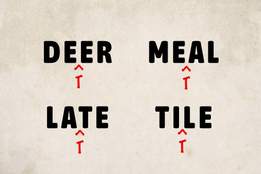slavery
noun
slav·ery
ˈslā-v(ə-)rē 

plural slaveries
1
a
: the practice or institution of holding people as chattel involuntarily and under threat of violence
In reality, though, African forms of slavery didn't compare with the racialized industrial variants that Western empires unleashed upon the world. … Here in the United States … the enslaved were relegated to subhuman status for generations.— Julian Lucas
Julian Lucas
 Julian Lucas
Julian LucasSlavery officially ended in New Jersey in 1804, but in practice some people remained slaves until 1865, when the ratification of the 13th Amendment formally abolished slavery in the United States.— Suzanne Travers
Suzanne Travers
see also chattel slavery
 Suzanne Travers
Suzanne Travers
b
: the state of a person who is forced usually under threat of violence to labor for the profit of another
[Frederick] Douglass, born a slave in Maryland in 1818, escaped from slavery at the age of twenty and quickly emerged as a major orator and leader of the antislavery crusade.— Manning Marable
Manning Marable
 Manning Marable
Manning MarableThe organization says it has helped 135 victims escape sex slavery over the past 10 years.— Audrey McAvoy
Audrey McAvoy
 Audrey McAvoy
Audrey McAvoy
c
: a situation or practice in which people are coerced to work under conditions that are exploitative
… the unit has freed more than 26,000 workers nationwide from debt slavery. Under the practice, common in the Amazon, poor laborers are lured to remote spots where they rack up debts to plantation owners who charge exorbitant prices for everything from food to transportation.— Vivian Sequera
Vivian Sequera
 Vivian Sequera
Vivian Sequera… a labor union for prisoners that aims "to end prison slavery," announced the start of a nationwide strike inside U.S. prisons. Wages for incarcerated workers are typically measured in cents per hour, and several states … use the labor of prisoners without paying them at all.— Daniel A. Gross
Daniel A. Gross
see also wage slavery
 Daniel A. Gross
Daniel A. Gross2
: submission to a dominating influence
slavery to habit
… it will probably be left to the next administration to act hopefully in a bold and visionary manner to free us from our slavery to oil.— Alon Ben-Meir
Alon Ben-Meir
 Alon Ben-Meir
Alon Ben-MeirLove words? Need even more definitions?
Merriam-Webster unabridged









Share